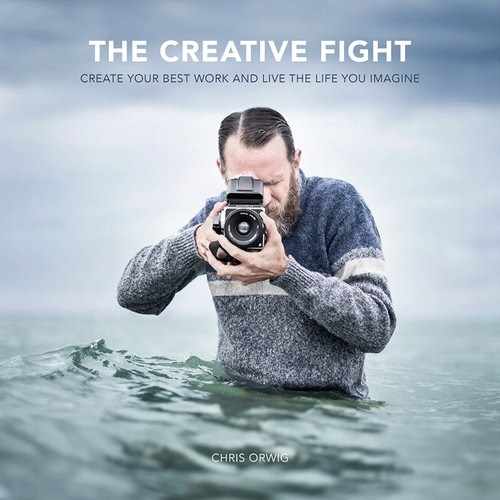Chapter Thirty-Two. Unlikely Education

Education doesn’t only happen in school, and wisdom is rarely just picked up within the safety of a roof and walls. Many of the most significant lessons of my life happened out in the field or on the journey to somewhere else. Herman, born centuries before our time, could relate. His most significant schooling began at sea.
Herman took his first boat trip when he was 18. The trip didn’t last more than a week but the effect was profound. The salt air and open sea stirred his imagination and compelled him to want more. A few years later this drive led him to embark on a journey that would last three years. He was hired to work on a whaling ship, which traveled far and wide. When the boat stopped in Polynesia, he and a crewmate deserted the ship only to be captured by cannibals. After four months as captives, they escaped. Over a decade later, Herman used what he learned at sea to craft one of the greatest novels of all time.
A School Without Walls
“Call me Ishmael” is how the novel begins. With three simple words, the reader is hooked. Yet Herman Melville didn’t learn how to craft catchy opening lines while at school. He had to come up with this by himself. He learned as he went. As he once said, “A whaleship was my Harvard.” And thank goodness that he went to that school; otherwise, we would never have benefited from his masterpiece, Moby Dick.
Melville’s book is a complex and tightly woven story that stands on its own—it is original through and through. The originality came from the sea and all the difficulties he experienced there. And this was not without intent. As Melville said, “It is better to fail in originality than to succeed in imitation.” He did not set out to tell a story that was simply about those who hunt the behemoths of the sea, but to use that context as a way to say more. Creatives always do this. They take the ordinary and run it through their imagination in order to create and to say something new. What we thought was a whale story is really about defiance, duty, God, and death.
As the story of Melville’s “education” illustrates, school isn’t a place—it’s a point of view. Every experience has the possibility of teaching you truth. And the deepest truths, those tested by time and referred to as wisdom, never come easily. These truths require patience and strength; they come at a cost most of us are unwilling to pay. We may prefer to learn from a book rather than taking the time and risk involved with a treacherous ocean trip. Plus it’s more comfortable and convenient to live life at a distance. From there we can observe and pontificate, at one with our own intoxicating superior thoughts.
Out on the sea you are immersed and surrounded with situations you cannot ignore or control. As a ship hand, Melville discovered that we do not stand alone—an interdependence is needed to sustain life away from land. As he later explained, “We cannot live only for ourselves. A thousand fibers connect us with our fellow man.” Wisdom like this comes only from living life as a traveler would. And the more life we live and the more difficulties we face, the greater potential for wisdom to be stitched into our souls, like threads that keep it from coming undone.
WE GIVE OUR SUFFERING MEANING BY THE WAY WE RESPOND TO IT.
— VIKTOR FRANKL
Free Advice
The trouble is that most of these threads are bound together so tightly that they are difficult to extract. The artist Austin Kleon found a way to shine a light on the threads without pulling them out. Kleon’s approach begins with the theory that “all advice is autobiographical.” With that premise in mind, he decided to write a book titled Steal Like an Artist. It was a collection of wisdom and advice for his younger self. The book went viral. Turns out that giving advice to our younger selves is a great way to access the wisdom that is woven into our lives.
My favorite piece of advice from Kleon is “Write the book you want to read.” Sage words for all of us no matter what it is that we want to create. When we stop creating for someone else, we become more original in our thoughts. And the core sentiment of this advice can be applied in so many ways: “Live the life you want to live” or “Climb the ladder you want to climb” or “Fix the problem that annoys you most.” The most powerful creative ideas come from deep within. And this isn’t just about having a positive outlook on life or taking a cruise ship on sunny seas. Sometimes the only way to break through is to witness the cruel and brutal killing of a whale.
This is true in both a conceptual and personal way. Thomas Edison put it this way: “Discontent is the first necessity of progress.” As all entrepreneurs know, the secret to finding good ideas is to pay attention to what bothers you and what you think the solution might be. Most of the best businesses were started this way.
Yvon Chouinard was a pioneer rock climber in Yosemite Valley in the 1960s. Frustrated that he couldn’t find reliable and high-quality rock climbing gear, he made his own. Others wanted the product too, so a company was born. Years later his company, Patagonia, was huge.
Chouinard didn’t stop innovating after he first forged metal climbing gear for his friends. From the beginning, he traveled and searched the globe for ways to improve the quality and impact of the company he owned. On one trip he revisited a remote South American town he had been to years before. The smiling children’s faces he remembered from before were replaced with kids who had gone blind. The town’s water source was being polluted by a business upstream. Chouinard was deeply upset. So he began to donate a portion of his company’s profits to help with situations like this. He started an organization to get others involved. And he committed his company to high environmental standards before it was a trend.
The idea of transforming discontent into positive change is not just about business; it’s about personal life as well. The psychologist and Nazi prison camp survivor Viktor Frankl once said, “What is to give light must endure burning.” What we endure is what gives substance to the content that we create. The deeper the suffering, the higher the reach. Viktor Frankl’s life work and writing are a testament to that. Yet this isn’t just for people who have been through extreme hardships. The principle applies regardless of the degree of suffering or whether we are young or old.
James was six when his older brother died. His mother was devastated. She could barely cope and fell into a deep depression. James was upset but wanted to help. In an effort to comfort his mom, he put on his older brother’s clothes and whistled like he used to. During this time of grief it occurred to James that his dead brother would never grow up. He couldn’t get this idea out of his head, and it stuck with him for the rest of his life. Even thirty years later when he wrote his most enduring work, the pain was still there. But now it was transformed into characters on the stage. And the play, Peter Pan, or The Boy Who Wouldn’t Grow Up, still resonates in a timeless way.
Suffering and Light
Suffering is dark, and I do not want to belittle the suffering that you have endured. And in no way do I want to call that suffering good. But I do want to suggest that the difficulty you have faced might be fuel for doing something good. When we revisit suffering in this way, sometimes we discover a pure center of light within the dark circle of the difficulties of life. And maybe what you have experienced can bring a unique brightness to the world.
Adopting a creative mind-set can help us find light when all seems dark. You may have suffered, but maybe that suffering has written a hidden story in your soul. It took James M. Barrie over thirty years to uncover his; maybe yours is yet to be. Or the challenges you have faced may be preparing you for a new stage in life. You might have an unlived life hidden inside, waiting to be revealed. Maybe there’s an author, photographer, chef, poet, or CEO just beneath the surface, waiting to be born. Maybe all the difficulties are really just soil and sustenance for this unlived life to grow. Like a lotus flower that floats on the surface but is anchored in the mud below.
Exercise
STEP 1
What advice would you give your younger self, or what would you have done differently with your life? Record your responses in a journal and then share them with a friend. Write them out in a non-linear and non-hierarchical form. Let go of the critic in your head and write free. Here are a few of my own to give you an idea: I would have slept outside more often. I would have stopped worrying so much about what other people thought. I would have cut my parents more slack. I would have listened more closely to God’s quiet voice.
STEP 2
Unattended and ignored, discontent can turn sour. Paid attention to, discontent can bring new life—that’s what the architect Jeff Shelton found out. Shelton discovered his life’s calling when some ugly cinderblock buildings were built near the idyllic setting of his family home. His disdain for the buildings gave him the resolve to become an architect himself. This was just the nudge he needed. Today his whimsical, colorful, and vibrant buildings have become world renowned.
In light of this idea, take 15 minutes to write a stream-of-consciousness response to the question “What bothers you most?” Think about problems big and small. After venting, don’t let the negativity sit cold. On another page, use the discontent as fuel for coming up with strategies or solutions for growth.

